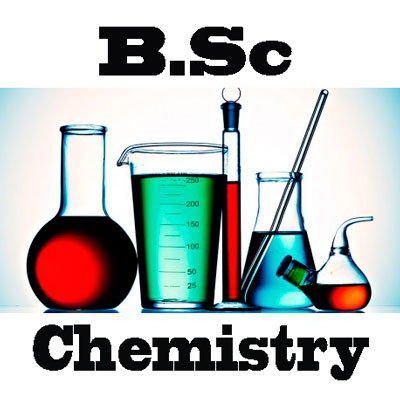Have you always admired scientists who work tirelessly in the field of cancer research? Do you think alternative energy resources and biodegradable plastics can save our planet? Pursuing a degree in chemistry would open a window to the world and help you develop an analytical bent of mind.

A degree in chemistry also provides students with a basic foundation that allows them to choose any specialization aimed at for later. Pursuing a B.Sc. in chemistry is a sensible idea as it crosses paths with many other sciences such as biology, geology, physics, and environmental science.
If you are curious about a degree in chemistry, this blog can clear all your queries. It throws light on what a chemistry bachelor’s degree might involve and what can you do with it.
What does a degree in chemistry involve?
Most bachelor degrees in chemistry involve the fundamental aspects of general, physical, organic and inorganic chemistry. The course offers both theoretical knowledge as well as practical lessons in all the sub-domains of the subject.
Getting well versed in chemistry can have a lot of benefits in real life as well. You can learn to read and understand the chemical compositions of various products, comprehend natural processes and enables to make informed decisions.
Career opportunities with a bachelor’s in chemistry
A basic bachelor’s degree in chemistry can open the doors for a lot of career alternatives. Here are some fields that offer exciting career roles for you.
- Careers in research: As a chemistry graduate, you can explore a career in academics or research. Positions such as research scientists, chemistry professors of chemical engineering consultants offer an avenue to combine your passion for chemistry and academics.
- Careers in chemical engineering: Chemical engineers work in many sectors such as oil and gas industries, plastic production, water treatment, and food and beverage production industries. As per requirement, you could be involved in the production, quality monitoring or the research and development wing. You can choose from a variety of roles which could be as chemical engineering experts, production engineers, quality assurance specialists or industrial chemists.
- Careers in healthcare: Most positions in the healthcare industry for chemists are largely based out of research laboratories. You can opt for roles like clinical researchers, biochemists, immunologists, proteomic experts, or physiological researchers.
- Career in pharmaceuticals: With newer advancements in the healthcare industry, there is a huge demand for qualified chemistry graduates in pharmaceutical companies. The positions in the industry include clinical pharmacists, pharmaceutical chemists, drug development consultant, and clinical trials officer.
Apart from these positions, you could also migrate to other scientific areas like bio-chemistry, microbiology, proteomics, physical chemistry or immunology.
A bachelor’s in chemistry course can provide a solid for higher studies as well. Join a B.Sc. chemistry course today to kick-start your career in this exciting domain.
